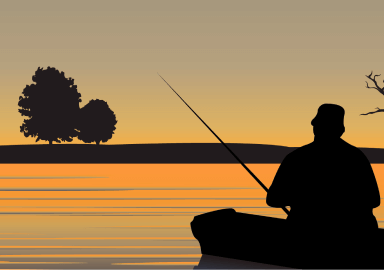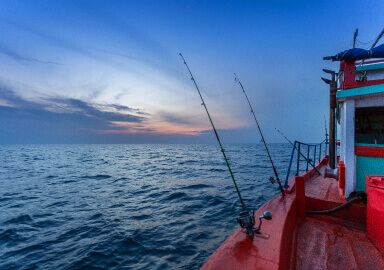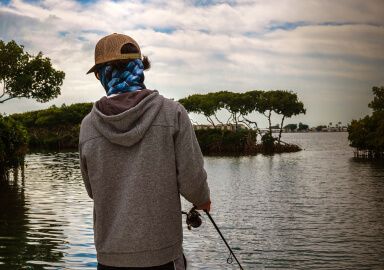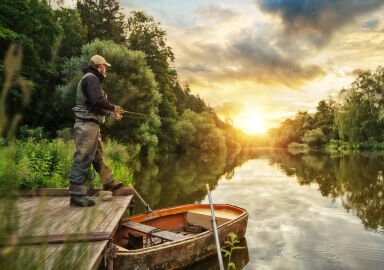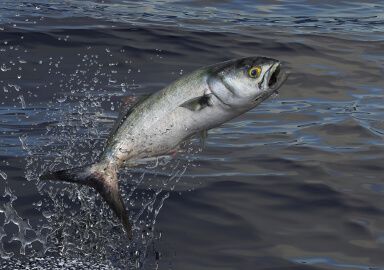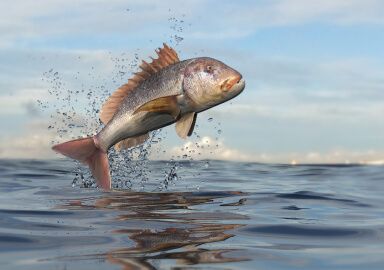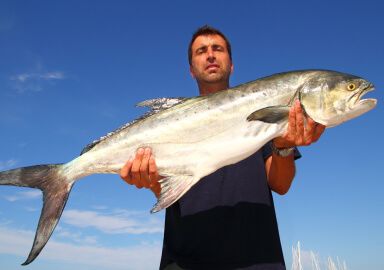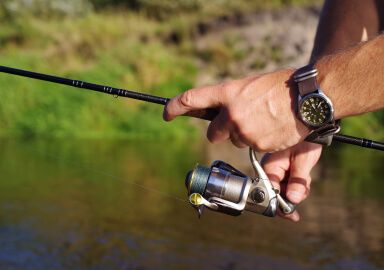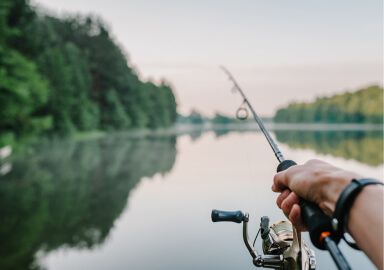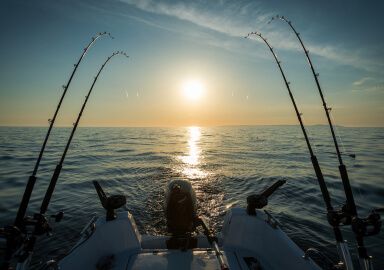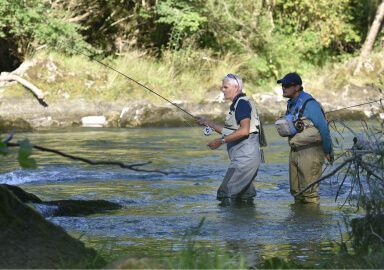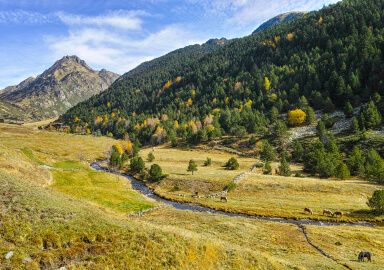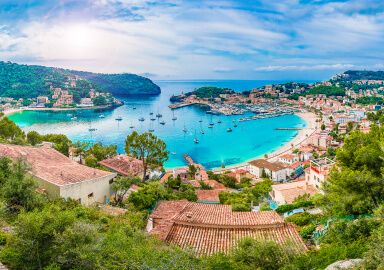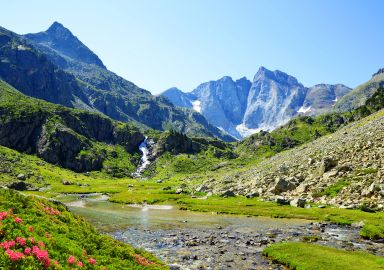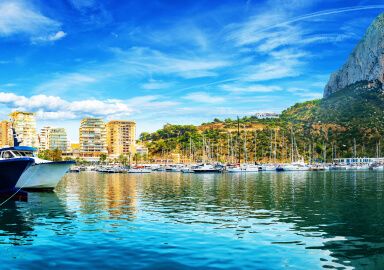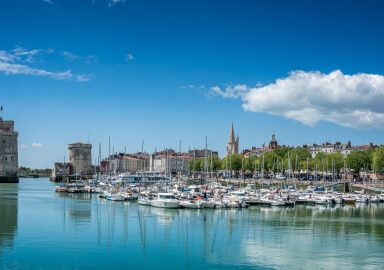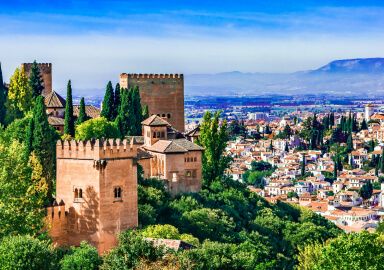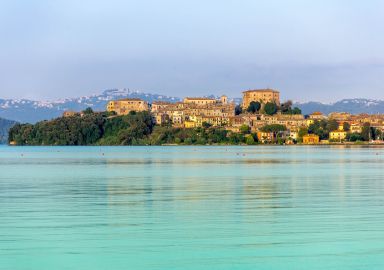Fishing in Catalunya
Chase giant catfish on the Ebro, stalk trout in the Pyrenees, or troll the Mediterranean for tuna - Catalunya is where your next fishing story begins.
View 5 listings
5
listings
–
price starting from
26
fish species
–
to the nearest trip
About Catalunya
Catalonia, or Catalunya in the Catalan language that is spoken there, is an autonomous community in northeastern Spain that is unique in many ways. It is known for its self-determination spirit, Barcelona - not only a city with unique architecture, but also sports clubs that dominate European sport scenes in almost every division, vibrant culture, spectacular coastline, and contrasting geography. And it’s one of the best if not the best region of Spain from an angler’s point of view - again, in more ways than one.
On the one hand, Catalunya’s geographic diversity translates into exceptional fishing opportunities. There are mountain streams in the rugged Pyrenees and inland lakes, the great Ebro River with its spectacular delta, and the warm waters of the Mediterranean Sea. On the other hand, while you generally need a fishing license to enjoy recreational angling in Catalunya (and special permits to fish in protected areas), the licenses are some of the more affordable and easy-to-obtain in Spain. And clients of professional guides and charters are typically covered by the operator’s license.
The region enjoys a Mediterranean climate, with hot summers, mild winters, and year-round access to both sea and inland waters. Popular coastal towns like L’Estartit, Cambrils, and Barcelona serve as hubs for charter fishing and shore angling, while the mountain provinces of Lleida and Girona provide access to wild rivers, reservoirs, and alpine lakes. Whether you're targeting tuna offshore, trout in fast-flowing streams, or carp in peaceful lakes, Catalonia offers it all, backed by strong infrastructure and a deep respect for its natural resources.
Fishing Types
Many types of fishing can be enjoyed in Catalunya’s saltwater and freshwater. Among the most popular are backcountry fishing trips in the Pyrenees, mountain streams and lakes offer crystal-clear water and challenging terrain. Among the rivers of northeastern Spain the mighty Ebro stands alone. Spain’s longest and most famous fishing river ends with an impressive delta where an angler can hook both fresh- and saltwater species in the brackish waters. Along the Costa Brava and Costa Daurada, anglers can fish offshore for big game species like tuna and swordfish, or stay inshore to target sea bass, dorado, and dentex around reefs and rocky points.
Targeted Fish Species
In saltwater, bluefin tuna is one of the most sought-after catches, especially during summer when they move closer to shore. Offshore waters also hold albacore, swordfish, mahi-mahi, and amberjack, while sea bass, dentex, gilthead bream, and bonito dominate the inshore scene. Surfcasters often land flatfish, eels, and conger, particularly along the Costa Daurada. Leerfish (Garrick) is a popular target species in the Erbo Delta.
Inland, the Ebro River system is home to Wels catfish, some exceeding 100 kg (220 lbs), as well as common carp, zander, and European perch. In cooler northern waters, anglers can catch rainbow and brown trout, particularly in fast mountain streams and alpine lakes in the Pyrenees. Barbel and black bass are also common targets in reservoirs throughout the region, rounding out Catalonia’s incredibly diverse list of game fish.
Fishing Techniques
Saltwater anglers use a variety of methods depending on location and season. Trolling is the primary technique for tuna and pelagics, especially from May through September. Vertical jigging, bottom fishing, and light spinning are used near shore for sea bass and dentex, while surfcasting is practiced extensively along sandy beaches using natural baits like squid, worms, or sardines. Spearfishing is also popular, especially along the rockier coastlines north from Barcelona.
In freshwater, carp fishing with boilies and method feeders is common along the Ebro, with anglers often setting up for multi-day sessions. Catfish is caught on specialized bottom rigs, with extensive feeding. Zander and bass respond well to spinning and soft plastics near submerged structure. In mountain waters, fly fishing is popular for trout, using small dries or nymphs, while ultralight spinning is also effective in turbulent rivers and streams. With such variety, Catalonia is perfect for anglers who enjoy adapting their tactics to different environments.
